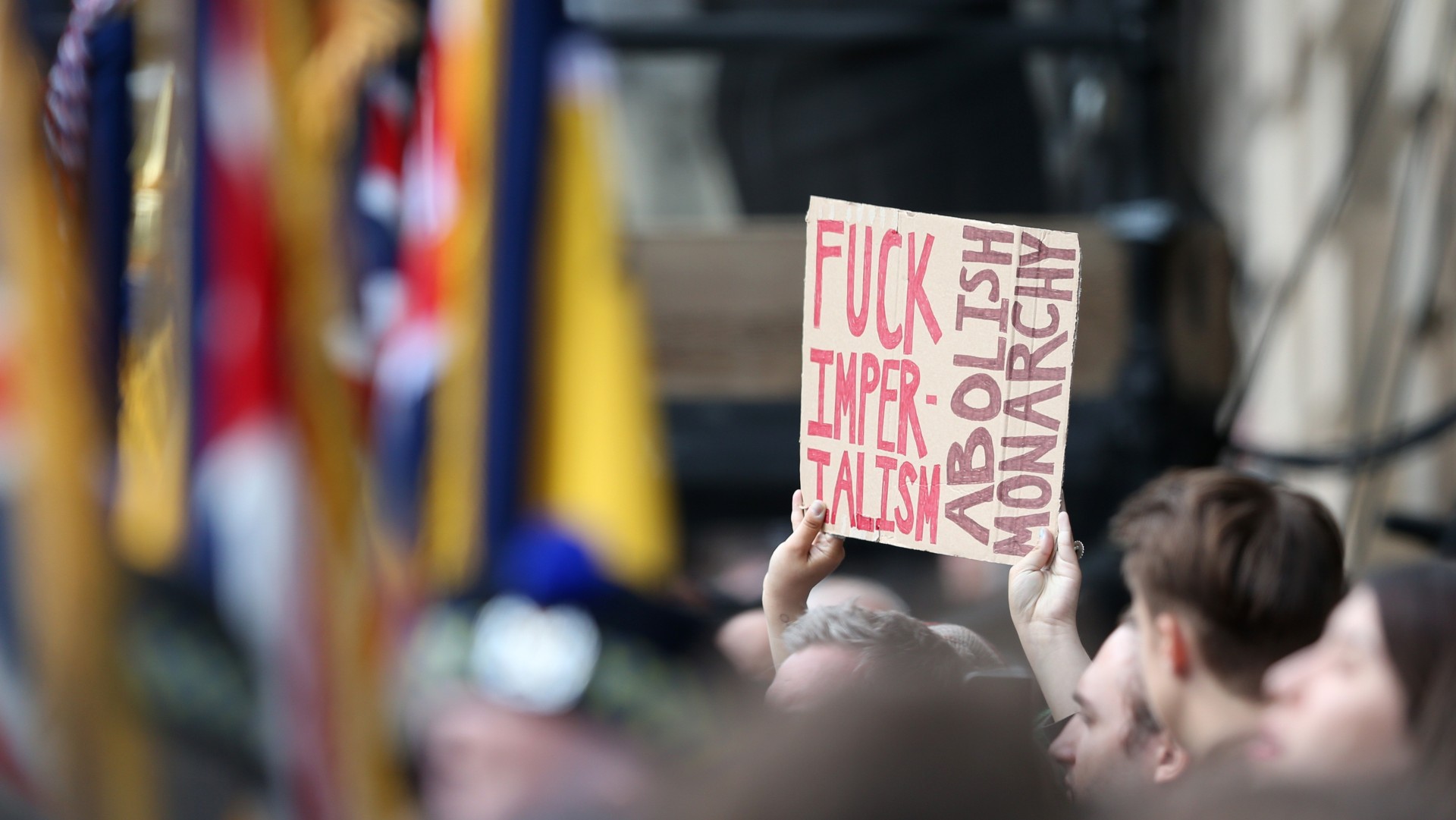‘A fundamental right’: free speech and anti-monarchists
Arrests of republican protesters in cities across UK sparks outcry and debate

A free daily email with the biggest news stories of the day – and the best features from TheWeek.com
You are now subscribed
Your newsletter sign-up was successful
The arrests of anti-monarchist protesters has sparked furious debate between free speech campaigners and commentators from across the political spectrum.
The Metropolitan Police has stressed that people “absolutely have a right to protest” against the monarchy following the death of the Queen. But anger is mounting after a string of people were detained for expressing anti-royal views.
Barrister and climate activist Paul Powlesland said he had been threatened with arrest under the Public Order Act after holding up a blank piece of paper in London’s Parliament Square. Powlesland told The Guardian that “interventions like that are having a chilling effect”.
The Week
Escape your echo chamber. Get the facts behind the news, plus analysis from multiple perspectives.

Sign up for The Week's Free Newsletters
From our morning news briefing to a weekly Good News Newsletter, get the best of The Week delivered directly to your inbox.
From our morning news briefing to a weekly Good News Newsletter, get the best of The Week delivered directly to your inbox.
‘Not the week for protest’?
Anger over the police interventions has been stoked by videos posted on social media showing protesters being detained. Powlesland tweeted footage of an exchange “that he appeared to have had with the officer, who could be heard telling him that someone might be offended if the lawyer were to write ‘not my king’ on the piece of paper he was carrying”, The Guardian reported.
Powlesland told the paper that “I speak in a certain way, was dressed in a certain way and understood the law, but someone else might have been in a different situation”.
In a separate incident, history tutor Symon Hill was detained on suspicion of a public order offence after shouting “who elected him?” during the proclamation in Oxford on Sunday of Charles III as the new king. In a blog post, Hill said he was later “de-arrested” and taken home in a police van, but was told that he would be asked to attend a further interview and might be charged.
Police officers’ seemingly heavy-handed approaches have been criticised by many commentators from across the political divide, although others are “supporting these arrests”, said the Daily Express.
A free daily email with the biggest news stories of the day – and the best features from TheWeek.com
Ruth Smeeth, chief executive of Index on Censorship, told Politics Home that “we must guard against this event being used, by accident or design, to erode in any way the freedom of expression that citizens of this country enjoy”. Jodie Beck, policy and campaigns officer at Liberty, said: “Protest is not a gift from the state, it is a fundamental right.”
Veteran journalist and broadcaster Andrew Marr told ITV’s Good Morning Britain that the arrest of anti-monarchy protesters was “outrageous”.
“We are a democratic country. We are an open disputatious country where we can say what is on our minds and I don’t believe for a moment that this is what the new king would have wanted,” Marr said.
Brendan O’Neill, chief political writer at Spiked, also condemned the “alarming, almost medieval act of censorship”. In an article in The Spectator, O’Neill described the arrests as “an intolerable assault on freedom of speech”.
“But many people who were coming to pay their respects in Windsor said this was not the week for protest,” reported Sky News’ home editor Jason Farrell.
Critics called such protesters “disrespectful” and “crass”, Farrell wrote, “though some still felt people should not be arrested even if their comments were offensive”.
Test of new legislation
Campaign groups including Big Brother Watch claimed that the growing number of reported anti-monarchist arrests were likely to be “unlawful”.
The arrests represent the first major public test of the Police, Crime, Sentencing and Courts Act, “which was drawn up by ministers largely in response to disruptive protests by Extinction Rebellion last year”, said Politics Home, “and voted through the Commons in April, despite fierce criticism from opposition parties”.
The legislation gives police more power to disrupt protests deemed to cause “significant impact” on others. Interpretation of that definition “clearly depends on the circumstances and sensitivities of the situation”, said Sky News’ Farrell.
But, he continued, “what is complicated in this instance is that two things are happening at the same time” – a period of national mourning but also a new king being proclaimed. “So, it is a big constitutional change during a time of high emotion.”
A number of protest groups have ruled out campaigning over the common week.
“But some people will, and it is the police, in the first instance, who will have to decide what is and is not appropriate,” Farrell concluded.